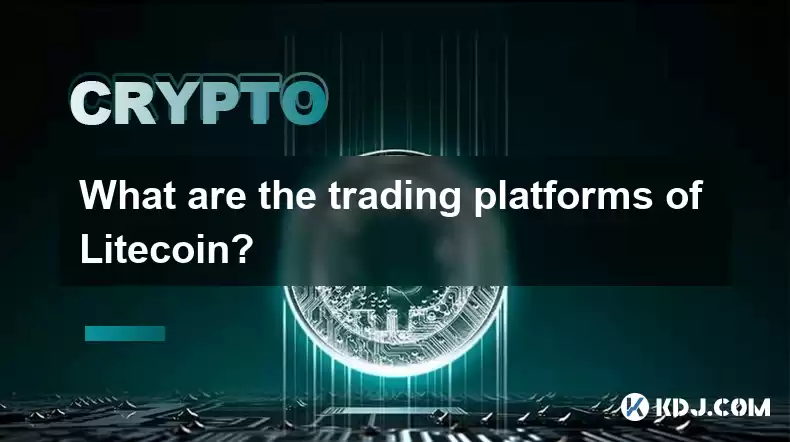-
 Bitcoin
Bitcoin $120100
1.16% -
 Ethereum
Ethereum $4329
2.25% -
 XRP
XRP $3.192
-0.22% -
 Tether USDt
Tether USDt $1.000
-0.01% -
 BNB
BNB $805.2
0.47% -
 Solana
Solana $178.7
-1.85% -
 USDC
USDC $0.9998
0.00% -
 Dogecoin
Dogecoin $0.2305
-1.62% -
 TRON
TRON $0.3445
1.17% -
 Cardano
Cardano $0.7940
-1.28% -
 Hyperliquid
Hyperliquid $44.44
-1.20% -
 Chainlink
Chainlink $21.86
-2.42% -
 Stellar
Stellar $0.4423
-0.15% -
 Sui
Sui $3.728
-3.84% -
 Bitcoin Cash
Bitcoin Cash $584.8
2.19% -
 Hedera
Hedera $0.2524
-2.87% -
 Ethena USDe
Ethena USDe $1.001
-0.02% -
 Avalanche
Avalanche $23.66
-0.78% -
 Litecoin
Litecoin $124.5
0.39% -
 Toncoin
Toncoin $3.399
1.77% -
 UNUS SED LEO
UNUS SED LEO $9.002
-0.44% -
 Shiba Inu
Shiba Inu $0.00001327
-2.10% -
 Uniswap
Uniswap $11.42
2.58% -
 Polkadot
Polkadot $3.957
-2.50% -
 Cronos
Cronos $0.1696
4.50% -
 Dai
Dai $1.000
0.00% -
 Ethena
Ethena $0.8139
3.04% -
 Bitget Token
Bitget Token $4.442
-0.38% -
 Monero
Monero $271.2
2.93% -
 Pepe
Pepe $0.00001168
-2.91%
What are the trading platforms of Litecoin?
Litecoin trades on various centralized (e.g., Coinbase, Binance) and decentralized exchanges (DEXs), each offering different security, fees, and user interfaces; careful research is crucial before choosing a platform.
Mar 12, 2025 at 06:26 am

Key Points:
- Litecoin's decentralized nature means it's traded on numerous platforms, each with its own strengths and weaknesses.
- Choosing a platform depends on factors like fees, security, available trading pairs, user interface, and regulatory compliance.
- Major centralized exchanges dominate Litecoin trading volume, but decentralized exchanges offer alternative options.
- Security is paramount; users should research platforms thoroughly before depositing funds.
- Understanding the differences between exchange types is crucial for informed trading decisions.
What are the trading platforms of Litecoin?
Litecoin (LTC), a peer-to-peer cryptocurrency, is traded on a wide variety of platforms globally. These platforms can be broadly categorized as centralized exchanges (CEXs) and decentralized exchanges (DEXs). The choice of platform depends heavily on individual trader preferences and priorities. Security, fees, and available trading pairs are all crucial considerations.
Centralized exchanges, such as Coinbase, Binance, Kraken, and KuCoin, are the most popular choices for Litecoin trading. These platforms act as intermediaries, holding users' funds and facilitating trades. They generally offer a user-friendly interface, high liquidity, and a large selection of trading pairs. However, this convenience comes at the cost of relinquishing control of your private keys to the exchange. Security breaches, though rare, remain a possibility.
Binance, one of the world's largest cryptocurrency exchanges, offers a robust Litecoin trading platform with numerous trading pairs and high liquidity. Its user interface is generally considered intuitive, but its complexity can be daunting for novice traders. Binance also offers a variety of advanced trading features, such as margin trading and futures contracts, catering to more experienced users.
Coinbase, known for its user-friendly interface and regulatory compliance in many jurisdictions, is a popular choice for beginners. While it may not offer the same range of trading pairs or advanced features as Binance, its emphasis on security and ease of use makes it a compelling option for those new to cryptocurrency trading.
Kraken, another established exchange, is known for its security features and its support for a diverse range of cryptocurrencies, including Litecoin. It offers a professional trading interface suitable for experienced traders, with advanced charting tools and order types. However, its interface may be less intuitive for beginners.
KuCoin is a rapidly growing exchange that provides a wide array of cryptocurrencies and trading pairs, including Litecoin. It is often praised for its competitive trading fees and its user-friendly mobile app. However, users should always research the security measures of any exchange before using it.
Decentralized exchanges (DEXs) offer an alternative approach to Litecoin trading. These platforms do not hold users' funds; instead, trades are executed directly between users using smart contracts. This eliminates the need to trust a centralized entity, enhancing security and privacy. However, DEXs often have lower liquidity than CEXs, and their interfaces can be more complex to navigate.
Uniswap, a popular DEX on the Ethereum blockchain, allows for Litecoin trading through wrapped Litecoin (wLTC). Wrapped Litecoin is an ERC-20 token that represents Litecoin on the Ethereum network. This allows users to trade Litecoin within the Ethereum ecosystem, accessing a wider range of DeFi applications.
Other DEXs, such as SushiSwap and PancakeSwap, may also support Litecoin trading through wrapped versions or other similar mechanisms. The specific availability of Litecoin on DEXs can vary depending on the platform and the underlying blockchain technology. It's crucial to check the availability of Litecoin trading pairs on any chosen DEX before attempting a trade.
Choosing the right platform requires careful consideration of several factors:
- Fees: Trading fees, withdrawal fees, and deposit fees can significantly impact profitability. Compare fees across different platforms.
- Security: Research the exchange's security measures, including its history of security breaches and its measures to protect user funds.
- Liquidity: Higher liquidity means tighter spreads and easier execution of trades. Look for exchanges with high trading volume.
- User Interface: Choose a platform with a user interface that suits your technical skills and experience level.
- Available Trading Pairs: Ensure the platform offers the Litecoin trading pairs you need.
- Regulatory Compliance: Consider the platform's regulatory status in your jurisdiction.
Frequently Asked Questions:
Q: Is it safe to trade Litecoin on online platforms?
A: Trading cryptocurrencies on any platform involves risk. While reputable exchanges employ robust security measures, the possibility of hacking or other security breaches always exists. Thoroughly research the platform's security protocols and track record before depositing funds. Use strong passwords and enable two-factor authentication whenever possible.
Q: What are the differences between centralized and decentralized Litecoin exchanges?
A: Centralized exchanges (CEXs) act as intermediaries, holding user funds and facilitating trades. They offer high liquidity and user-friendly interfaces but require trusting a central authority. Decentralized exchanges (DEXs) eliminate the need for a central authority, enhancing security and privacy, but often have lower liquidity and more complex interfaces.
Q: Which platform is best for beginners trading Litecoin?
A: Coinbase is often recommended for beginners due to its user-friendly interface and emphasis on regulatory compliance. However, other platforms offer beginner-friendly features as well. Research several platforms before making a choice.
Q: How do I choose the right Litecoin trading platform for me?
A: Consider your trading experience, risk tolerance, desired features (e.g., margin trading, advanced charting tools), and the level of security you require. Compare fees, liquidity, and user interface across different platforms to find the best fit.
Disclaimer:info@kdj.com
The information provided is not trading advice. kdj.com does not assume any responsibility for any investments made based on the information provided in this article. Cryptocurrencies are highly volatile and it is highly recommended that you invest with caution after thorough research!
If you believe that the content used on this website infringes your copyright, please contact us immediately (info@kdj.com) and we will delete it promptly.
- Bitcoin, Solana, MAGACOIN FINANCE: Navigating the 2025 Crypto Landscape
- 2025-08-12 00:30:13
- Cardano, ADA Holders, and Layer Brett: A Meme Coin with Real Utility?
- 2025-08-12 00:50:12
- Bitcoin, Michael Saylor, and Savvy Investors: A New Era of Digital Assets
- 2025-08-12 00:30:13
- Crypto Presales in 2025: Spotting the Next Big Thing with Analyst Insights
- 2025-08-12 00:50:12
- Cloud Mining in 2025: Bitcoin, Litecoin, and the Quest for Passive Income
- 2025-08-12 00:55:32
- Token Security, Agentic AI, Cybersecurity Guide: Navigating the New Frontier
- 2025-08-11 23:00:12
Related knowledge

How to purchase Aragon (ANT)?
Aug 09,2025 at 11:56pm
Understanding Aragon (ANT) and Its PurposeAragon (ANT) is a decentralized governance token that powers the Aragon Network, a platform built on the Eth...

Where to trade Band Protocol (BAND)?
Aug 10,2025 at 11:36pm
Understanding the Role of Private Keys in Cryptocurrency WalletsIn the world of cryptocurrency, a private key is one of the most critical components o...

What is the most secure way to buy Ocean Protocol (OCEAN)?
Aug 10,2025 at 01:01pm
Understanding Ocean Protocol (OCEAN) and Its EcosystemOcean Protocol (OCEAN) is a decentralized data exchange platform built on blockchain technology,...

Where can I buy UMA (UMA)?
Aug 07,2025 at 06:42pm
Understanding UMA and Its Role in Decentralized FinanceUMA (Universal Market Access) is an Ethereum-based decentralized finance (DeFi) protocol design...

How to buy Storj (STORJ) tokens?
Aug 09,2025 at 07:28am
Understanding Storj (STORJ) and Its Role in Decentralized StorageStorj is a decentralized cloud storage platform that leverages blockchain technology ...

Where to find the best price for Audius (AUDIO)?
Aug 11,2025 at 04:01pm
Understanding the Basics of Ethereum StakingEthereum staking refers to the process of locking up ETH tokens to support the security and operations of ...

How to purchase Aragon (ANT)?
Aug 09,2025 at 11:56pm
Understanding Aragon (ANT) and Its PurposeAragon (ANT) is a decentralized governance token that powers the Aragon Network, a platform built on the Eth...

Where to trade Band Protocol (BAND)?
Aug 10,2025 at 11:36pm
Understanding the Role of Private Keys in Cryptocurrency WalletsIn the world of cryptocurrency, a private key is one of the most critical components o...

What is the most secure way to buy Ocean Protocol (OCEAN)?
Aug 10,2025 at 01:01pm
Understanding Ocean Protocol (OCEAN) and Its EcosystemOcean Protocol (OCEAN) is a decentralized data exchange platform built on blockchain technology,...

Where can I buy UMA (UMA)?
Aug 07,2025 at 06:42pm
Understanding UMA and Its Role in Decentralized FinanceUMA (Universal Market Access) is an Ethereum-based decentralized finance (DeFi) protocol design...

How to buy Storj (STORJ) tokens?
Aug 09,2025 at 07:28am
Understanding Storj (STORJ) and Its Role in Decentralized StorageStorj is a decentralized cloud storage platform that leverages blockchain technology ...

Where to find the best price for Audius (AUDIO)?
Aug 11,2025 at 04:01pm
Understanding the Basics of Ethereum StakingEthereum staking refers to the process of locking up ETH tokens to support the security and operations of ...
See all articles

























































































